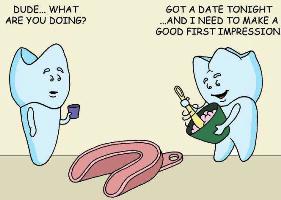
We often hear that writers should act like professionals. And we should. But what, exactly, does that entail?
To write this blog, I delved into the subject and, to my dismay, discovered there's very little out there on what professionalism is. Currently, there are blogs about what authors should and shouldn't do on the social media, but professionalism goes far beyond that.
According to Michael K. O'keffe, a well-known and respected business advisor, "First impressions count…and you can't take back a bad one."
WHAT IS A PROFESSIONAL?

I don't intend to debate the dictionary or common definitions … I want to articulate what writers should and shouldn't do to look like, act like, and be "professionals".
CHARACTERISTICS OF A PROFESSIONAL
The Monster Career Coach writes, "Acting like a professional means doing what it takes to make others think of you as reliable, respectful, and competent. There are, however, quite a few common traits when it comes to being professional…"
On the same subject, Author Simon P. Clark says "Professionalism in this case [being a writer] is as much a way of viewing yourself, your success, and your approach to the book world as it is something you act out. Seeing yourself, and being, professional can make a real difference in what you expect to achieve and how you feel about acting upon those dreams."
I've combined several lists of professional characteristics and added comments about how they apply to writers.
● Competent
The professional knows and exercises the craft and has achieved a high level of skill in not only in writing, punctuation, and grammar, but editing, management, and marketing.
The professional has learned the rules of the writing/publishing industry, and follows them. Writers need to let go of the pretension that writing is an art and doesn't need rules.
A competent professional produces quality work and pays attention to details. Everything you produce says something about your competence and professionalism. Present polished and finished work. This doesn't mean you can never make a mistake. It should mean that you catch those mistakes they become "public".
Do your homework. Be sure you know what you're talking about before you speak, and qualify the statement when appropriate. Don't say something is true or desirable just because someone has told you that it is.
● Reliable
The professional can be counted on to deliver on commitments in a timely and competent manner. That means the writer is able to accurately estimate the time it takes to accomplish a task, knows when to say no, and when to negotiate deadlines/other matters. The professional says "no" to socializing and other routine activities when there is the need to complete a deadline [outside or self-imposed]. Being punctual, when it applies to a writer, is part of being reliable.
● Honest
The professional tells the truth and is upfront about where things stand, but knows how to deliver the message in the most effective and unhurtful manner.
● Has integrity
The professional lives and works within consistent principles, doesn't gossip or divulge confidential matters [their own or anyone else's], and acts with integrity. For example, the professional doesn't try to corner an editor in the restroom and pitch his/her book.
● Respects others
The approach of a professional is to sincerely treat all people as though they matter. Respect the opinions of others and let them have their say, whether or not you agree. A professional knows when a debate is appropriate and when it's not. And they don't take differences of opinion as personal.
They don't attack or trash others, particularly editors and reviewers, even if they believe they have good reasons.
The professional not only considers the feelings of others before speaking or acting, but also considers how others not involved will react to what is said or written. You can voice your opinion without being nasty or shooting yourself in the foot.
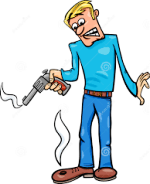
And for everyone's sake, turn off your cell phone or set it on vibrate when you're in meetings or talking to other people. There's nothing more disrespectful. If, by chance you forget, don't answer and turn it off.
● Self-Upgrading
Professionals don't rest on their laurels. Rather than letting skills and knowledge become outdated, they seek ways to stay current and learn new things.
Devour training opportunities that will keep skill levels above the competent level and ahead of the curve. Take classes, join professional organizations, teach, try something new, write in a different genre, test your limits, think outside the box. Grow constantly
● Has a positive attitude
No one likes a constant pessimist. Many writers are insecure about their work. A professional believes in his/her product and has an upbeat attitude. Remember, this is a business. Rejections are not personal attacks on you or your writing. There are many reasons for a rejection that have nothing to do with the writer or the quality of writing.
Think positively about the editing process. It improves your work.
Reviews are one person's opinion. Look for grains of truth in even the worst reviews.
● A problem solver
The professional sees the signs of problems before they occur and searches for solutions.

● Pragmatic about the business of writing
A professional approaches the business of writing with down-to-earth pragmatism. Author Simon P. Clark writes "Was your book rejected? Okay. Move on. It's a business. Did you get bad feedback from a critique? Work on it. Tone down your ego."
He also includes in professionalism: "Be courteous and businesslike in letters to editor, agents, publishers, and others." And "Follow guidelines lines and directions on websites." [Agents and publishing houses]
● Supportive of others
Share the spotlight with colleagues, take time to show others how to do things properly, and lend an ear when necessary. Give a pat on the back to other authors for their achievements.
Professionals share their knowledge with others and don't "hoard" it hoping that it will give them an extra advantage, or just can't be bothered with beginners. Others have helped you on your way to professionalism; it's appropriate to "give back".
Show that you know it's not all about you.
● Work focused
The professional does not let private life needlessly have an impact on the job [as a writer].
● Reasonable to work with
Someone who makes it difficult to do business with is not a professional. If the person is not serving the customer (in the writer's case, the publisher and the reader), then they are pursuing a hobby, not a profession.
This doesn't mean you don't stand your ground when something matters to you or violates your principles, but don't dig in on everything. Always be courteous and polite.
● A careful listener
When others are talking, in a meeting or directly to the writer, pay full attention and hear what is being said. Don't display bored or uninterested body language, and don't talk or text during meetings, training classes, and group situations like critique groups.
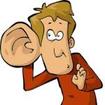
● Dresses appropriately

When you're presenting yourself to others, err on the side of business dress rather than sloppy or too casual. Even if the editors taking pitches look ultra casual, you should dress like writing matters to you and your career is on the line.
● Pays attention to e-mail etiquette
Introduce yourself early in the message and, if the recipient is someone you don’t know well, let the recipient know how you know them. Also, try your best to keep the message concise and to the point. Put the bottom line (the action needed, the request, the information being conveyed) up front.
At the bottom of your message, always include a signature block with your contact information. Keep the signature block to three or four lines. For writers, this means that no one wants to read a list or see the covers of every book you've written. It's better to have a signature block with your name, author brand and links…and let it go with that.
ACTING LIKE A PROFESSIONAL
The definition of "professional" is the definition. The issue is what behaviors and conduct does "professionalism" encompass? You can be a professional by definition and not conduct yourself as one.
Here are my additions to the list of characteristics, based on my experience as an architect, urban planner, and manager.
● Make informed and thoughtful decisions
I believe this is the key to professionalism. Gather the facts and assess them from all angles before you formulate your opinions and/or make decisions. Then don't hesitate to carry out those decisions. Don't act impulsively or emotionally. Get the facts first.

An important part of informed decision making is knowing your business well enough to:
1) Know your options
Example: You get a hateful review on Amazon or a review site. What are your options? First, if you decide to do anything except ignore it, determine if you will deal directly with the individual in a personal communication or if you are going public (social media, etc.) Second, decide if you going to react defensively or you are attacking. Then consider the following.
a) Ignore (don't acknowledge the review in any way);
b) Thank the person for taking time to read the book and writing the review;
c) Same as b only point out that you regret the reviewer didn't enjoy the book (and maybe that other reviewers did);
d) Write a mild rebuttal, pointing out where the reviewer is mistaken, misunderstands, or overlooked something;
e) Come out swinging and write a scathing response. For example, Alain de Botton's comments to fellow author Caleb Crain, who reviewed de Button's book in the NY Times.
"Caleb, you make it sound on your blog that your review is somehow a sane and fair assessment.... In my eyes, and all those who have read it with anything like impartiality, it is a review driven by an almost manic desire to bad-mouth and perversely depreciate anything of value.... I will hate you till the day I die and wish you nothing but ill will in every career move you make."

2) Know the consequences of those options
Using the same example and options, what is the worst (and best) thing that could happen to you, to the author of the review, and to others, as a result of following up on the various options.
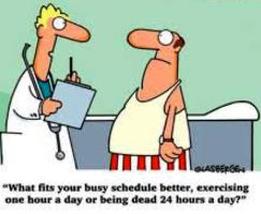
What are you willing to risk? You may not care what the reviewer thinks, but what about readers? Play it out and be sure you know what your risks are.
● Own Responsibility for you Actions
If you make informed decisions, this shouldn't be a problem, but you own your actions.
● Put your profession first.
Whether or not writing is how you support yourself, if you are serious about writing, it should come first. That doesn't mean if your mother is in the hospital, you should sit at your computer and not be with her. It doesn't mean you quit your day job or write on your employer's time and not do the work you're paid for.
It does mean that if you have a deadline you've committed to and your child has soccer practice, you either negotiate the deadline with your editor or you find someone else to take your child to practice. It does mean you'll have to miss the once-a-year sale at Nordstroms if you have a conflict with your writing commitments and needs.
● Time is of the essence.
This isn't just a cute turn of phrase: it's a legal term which, in effect, says: the specified time and dates in this agreement are vital and thus, mandatory, and "we mean it." Therefore, any delay, reasonable or not, slight or not, will be grounds for cancelling the agreement.
As the cliché goes, Time is money. It's a "professional" necessity as well as a courtesy. If you have three months to do something, schedule it, but don't wait until the last possible moment, unless you're forced to. It's similar to what author and teacher S.L. Stebel says about feeding information to the reader (in a novel) at the right time: "If later is good, now is better."
If you can get it done earlier than the deadline, do it.
● Know what you are committing to.
Be sure when you make a commitment, you're able and willing to do what's required to deliver. Don't commit to something you know you can't do. If you don't know what it takes, find out before you agree to take on the task.
Right now it takes me close to a year to write a 100 k novel. I could probably do it in nine or ten months if I made some changes in my life and pushed myself. But I should not agree to eight months, particularly with the expectation that I can always ask for an extension when the time comes. I might need that extension for a real emergency such as serious illness, someone in my family is injured, my house burns down, etc.
You can always indicate that you have to think about it or check your calendar before you answer … and then do some calculating, check your calendar, and get back to the person right away … not a week or a month later.
You can always negotiate at the beginning, particularly if you know you have a conflict scheduled. If you agree to a time frame, but you've paid for a cruise with your husband for two weeks out of that time, talk about it. Most of the time, you and your agent/editor/publicist/whomever can work out something reasonable.

Easy to say and hard to do. But as a professional, it is a requirement of the job. Do your best, but constantly work at improving. Most important, don't procrastinate. There is no excuse for that.
● Always acknowledge the receipt of something someone sends to you.
Even if you can't address it right away, let the person know you received it and, preferably, what to expect will happen, such as you'll get back to them later.

Telling some off may make you feel better, but it might not be good for your career in the long run. (Go back to consequences of your actions.)
● Don't expect special treatment
If you're Nora Roberts or J.K. Rowling, you'll get it anyway. Otherwise, writing and being published doesn't make you "special". You're just another of thousands of people who write and are published. Remember that not everything is about you. You're part of a business…and a big one.
● Take pride in doing good work
Do good work. Make it the best it can be. Don't undersell yourself. Not only should you be proud of your work, be proud of being a writer and don't be shy about publicizing your work.
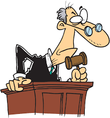
Here's a practical example of a real life situation which is indicative of an author's professionalism.
Is it professional behavior to request, beg, plead, or otherwise ask other authors, readers, and friends to vote for your book in an unjuried competition [meaning that the winner is selected by popular vote and not by a panel or jury of experts] or to "like" your book on Facebook, Amazon, or B&N?

What's your opinion? I'd love to hear it. Can you think of another such situation when professionalism comes into play?
Resources
http://monster.typepad.com/monsterblog/2011/08/10-unprofessional-behaviors-to-avoid.html
http://www.writersandartists.co.uk/2013/04/acting-like-a-pro
http://ezinearticles.com/?Unprofessional-Behavior-Eventually-Destroys-Completely&id=3530415
http://www.expertbusinessadvice.com/experts/business-consulting-management-expert-business-professional-mike-okeefe.html
http://www.expertbusinessadvice.com/leadership/The-First-Step-to-Being-a-Professional-is-Acting-Like-It-201.html
 RSS Feed
RSS Feed